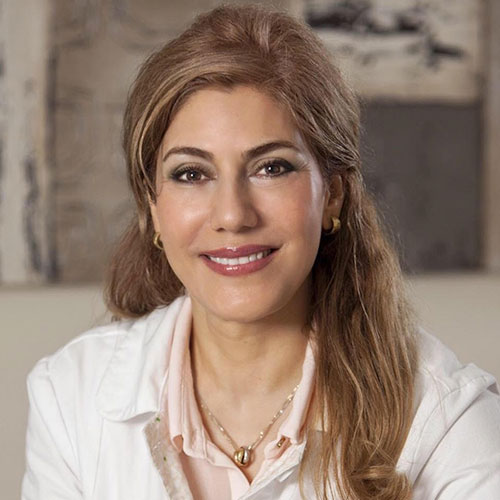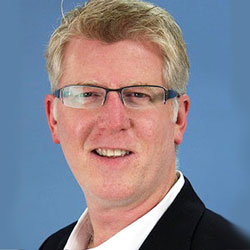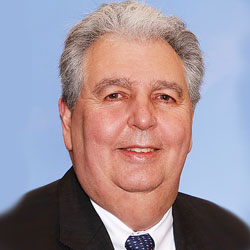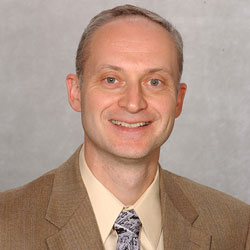-
 Roya Zandparsa, DDS, MSc, DMD AI technology has been used in many aspects of human society, including medicine, and it is also being used more and more widely in dentistry. The applications extend from the research and development of new dental materials to diagnostic tools(e.g., to detect caries, periapical lesions, and periodontal disease), to treatment planning and oral health care delivery, to the post-treatment monitoring and follow-ups. In this presentation the basic concepts and principles of AI, the new advancements, new approaches, and applications of AI along with other digital technologies in dentistry will be discussed. Recorded March 15, 2022
Roya Zandparsa, DDS, MSc, DMD AI technology has been used in many aspects of human society, including medicine, and it is also being used more and more widely in dentistry. The applications extend from the research and development of new dental materials to diagnostic tools(e.g., to detect caries, periapical lesions, and periodontal disease), to treatment planning and oral health care delivery, to the post-treatment monitoring and follow-ups. In this presentation the basic concepts and principles of AI, the new advancements, new approaches, and applications of AI along with other digital technologies in dentistry will be discussed. Recorded March 15, 2022 -
 Lee Culp, CDT As dentistry evolves into the digital world, the successful incorporation of computerization and new technology will continue to provide more efficient methods of communication and fabrication while at the same time retaining the individual creativity and artistry of the skilled dentist and dental technician, while the utilization of new technology will continue to enhance the close cooperation and working relationship of the dentist/technician team. This presentation will offer participants a unique insight into digital design by creating a Virtual Patient by combining 3D Face Scanning, IOS and CT scans. Then using a combination of Diagnostic, Restorative, Orthodontic, Denture and Implant planning software for pre surgical planning to design, printed diagnostic wax-up and milled provisional PMMA restorations, and their digital replicas to guide us in the creation of cad-cam restorations, for both tooth and implant supported prosthetics. Recorded - February 5, 2022
Lee Culp, CDT As dentistry evolves into the digital world, the successful incorporation of computerization and new technology will continue to provide more efficient methods of communication and fabrication while at the same time retaining the individual creativity and artistry of the skilled dentist and dental technician, while the utilization of new technology will continue to enhance the close cooperation and working relationship of the dentist/technician team. This presentation will offer participants a unique insight into digital design by creating a Virtual Patient by combining 3D Face Scanning, IOS and CT scans. Then using a combination of Diagnostic, Restorative, Orthodontic, Denture and Implant planning software for pre surgical planning to design, printed diagnostic wax-up and milled provisional PMMA restorations, and their digital replicas to guide us in the creation of cad-cam restorations, for both tooth and implant supported prosthetics. Recorded - February 5, 2022 -
 Frauke Müller, DMD When tooth loss occurs later in life, ageing and multimorbidity impact dental treatment decisions. There is sufficient evidence to state that the mandibular implant overdenture is a well-established treatment modality, certainly in non-dependent edentulous individuals, but little is known on the very old and geriatric edentulous patients with comorbidities. They often present unfavourable anatomical conditions and effects of the multiple medications for their chronic conditions. The present webinar therefore describes the use of minimal-invasive and simple treatment concepts for elderly, edentulous patients and discusses the risks of implant placement that are related to their medical conditions. It further highlights possible complications which may arise with the onset of dependency and/or frailty and advises further simplification of the implant-restorations when needed. Recall and maintenance in this group of patients is crucial to assure the patients’ benefit from the intervention until late in life. Recorded - February 2, 2022
Frauke Müller, DMD When tooth loss occurs later in life, ageing and multimorbidity impact dental treatment decisions. There is sufficient evidence to state that the mandibular implant overdenture is a well-established treatment modality, certainly in non-dependent edentulous individuals, but little is known on the very old and geriatric edentulous patients with comorbidities. They often present unfavourable anatomical conditions and effects of the multiple medications for their chronic conditions. The present webinar therefore describes the use of minimal-invasive and simple treatment concepts for elderly, edentulous patients and discusses the risks of implant placement that are related to their medical conditions. It further highlights possible complications which may arise with the onset of dependency and/or frailty and advises further simplification of the implant-restorations when needed. Recall and maintenance in this group of patients is crucial to assure the patients’ benefit from the intervention until late in life. Recorded - February 2, 2022 -
 Joseph Fiorellini, DMD, DMSc The clinician has multiple decisions when treatment planning for a compromised dentition. The evaluation of teeth for retention or extraction can involve factors including bone volume, extent of periodontal bone loss and restorability. The balance of these factors will enhance the predictably of the implants in the compromised dentition. Recorded - January 22, 2022
Joseph Fiorellini, DMD, DMSc The clinician has multiple decisions when treatment planning for a compromised dentition. The evaluation of teeth for retention or extraction can involve factors including bone volume, extent of periodontal bone loss and restorability. The balance of these factors will enhance the predictably of the implants in the compromised dentition. Recorded - January 22, 2022 -
 Len Tolstunov, DDS, DMD This presentation will discuss implant success and failure from the holistic approach and biologic balance that always exists between local and systemic factors. Loss of this balance and deterioration of key local factors and systemic condition will inevitably lead to a peri-implant bone loss and peri-implantitis. Surgical and some prosthetic considerations in implant failures will be discussed and clinical indices of implant success will be reviewed. Case presentations will help to review apical and marginal peri-implantitis. Inflammatory nature of peri-implantitis will be compared with non-inflammatory condition that can be classified as “peri-implantosis”. Treatment of peri-implantitis will be presented. Implant success will be defined as a dynamic process related to host’s health, as well as local factors, including bone and soft tissue quality around implant, implant design, and maintenance protocols. Finally, biologic principles of implant success at the time of implant placement and with age will be suggested. Recorded - January 19, 2022
Len Tolstunov, DDS, DMD This presentation will discuss implant success and failure from the holistic approach and biologic balance that always exists between local and systemic factors. Loss of this balance and deterioration of key local factors and systemic condition will inevitably lead to a peri-implant bone loss and peri-implantitis. Surgical and some prosthetic considerations in implant failures will be discussed and clinical indices of implant success will be reviewed. Case presentations will help to review apical and marginal peri-implantitis. Inflammatory nature of peri-implantitis will be compared with non-inflammatory condition that can be classified as “peri-implantosis”. Treatment of peri-implantitis will be presented. Implant success will be defined as a dynamic process related to host’s health, as well as local factors, including bone and soft tissue quality around implant, implant design, and maintenance protocols. Finally, biologic principles of implant success at the time of implant placement and with age will be suggested. Recorded - January 19, 2022

